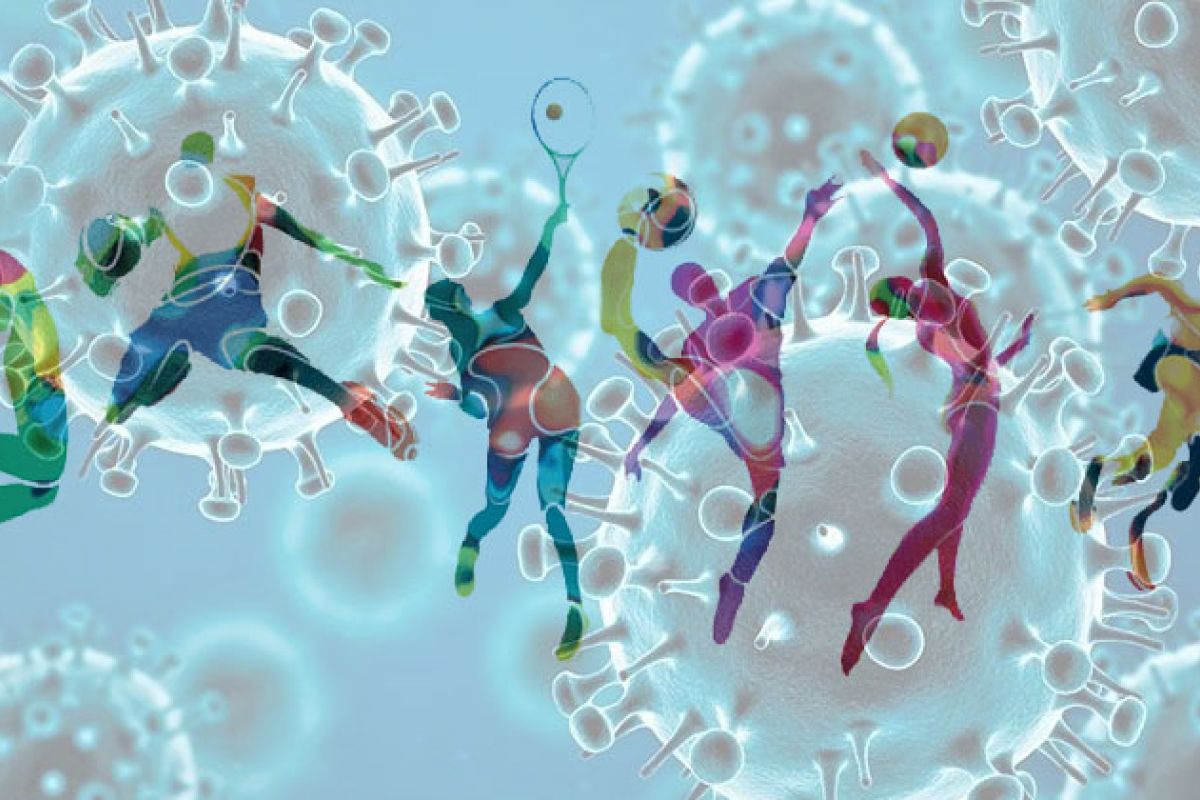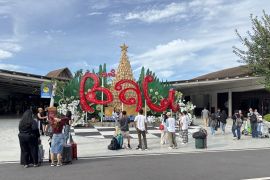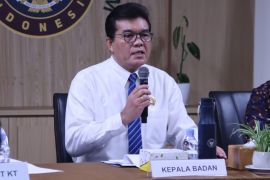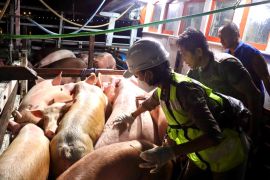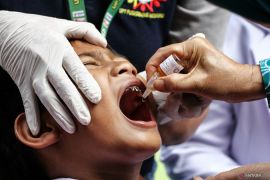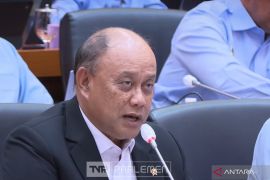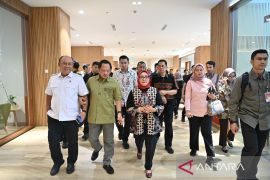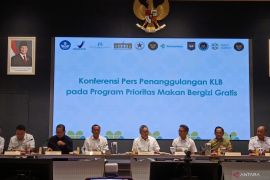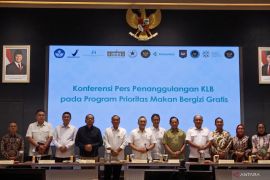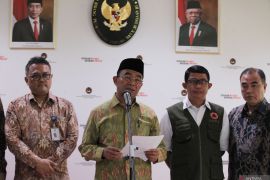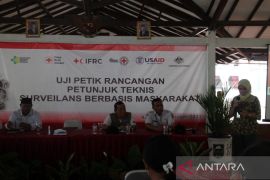There will be no more restrictions on people's activities and mobility, considering that the herd immunity among Indonesian people reached 98.5 percent in July 2022, he said at the Merdeka Palace here.
Still, he asked all parties to remain careful and vigilant to prevent the transmission of new COVID-19 variants and spike in infections in the future.
The decision came as a relief for all parties. The step to bring people’s daily activities in all sectors back to ‘normal’ or pre-pandemic levels, including the implementation of sporting events, which were conducted without spectators in the past few years, came as a breath of fresh air.
The decision to allow spectators to flock to the stadium again was not only aimed at enlivening games, but also encouraging the recovery of economic activities related to their implementation.
For instance, it could increase demand for both big and small entrepreneurs involved in apparel production, ticket sales, food and beverage businesses, as well as merchandise sales.
It’s not hard to imagine that if matches can be watched directly by large crowds again, like before the COVID-19 pandemic, there would be a vast multiplier effect on the people’s economy.
The implementation of sporting events has the potential to fully revive economic activities in many sectors, which have been paralyzed for about three years due to restricted community mobility.
Back to normal in 2023
In other parts of the globe, the enthusiasm for sporting events has revived completely since some time ago. And it has had a positive impact on other industries related to sports, for instance, broadcasting and sponsorship businesses.
The Global Sports Survey carried out in 2022 found that 56 percent of people around the world were eager to watch sporting events—an increase from 43 percent two years prior.
The revival of the sports industry is also expected to mitigate the impact of a global recession, which is projected to peak in 2023.
Based on the Global Sports Outlook 2023 published by leading American financial institution Fitch Ratings, it has been estimated that the economic value of the sports industry will return to the pre-pandemic ‘normal’ this year.
Although the global recession may cut ticket sales, the financial institution has assessed that it will not significantly affect the contract value of sponsorships and broadcasting rights.
In addition, Fitch Ratings has observed that generally, the sports industry did well throughout 2022.
From another perspective, the implementation of major national and international sports events could directly stoke the revival of other sectors, such as tourism.
The impact of tournaments on the tourism sector can be seen through the increase in hotel occupancy rates and transportation ticket bookings.
One needn’t think further than the huge impact of sold-out tickets at various venues selected for the international competitions that will be hosted by Indonesia in 2023.
For instance, the Pertamina Mandalika International Street Circuit, which will hold the MotoGP, Istora Gelora Bung Karno for Indonesia Open BWF World Tour Super 1000, as well as the stadiums in the six cities that will host the FIFA U-20 World Cup.
The presence of spectators at the venues would also be an opportunity to strengthen the development of sports tourism, which could have bigger multiplier effects on the tourism, sports, and economic sectors.
In fact, the United Nations World Tourism Organization (UNWTO) noted recently that sports tourism is one of the fastest-growing tourism sectors.
Need to curb euphoria
Global travel activities have grown rapidly over the past few decades. According to UNWTO data, 1.5 billion international tourist arrivals were recorded in 2019.
Meanwhile, when most countries implemented travel restrictions due to the COVID-19 pandemic, the international organization found that the number of arrivals in 2020 and 2021 dipped to 406 million and 429 million, respectively.
However, UNWTO estimated that the number of arrivals could grow to 65 percent of the pre-pandemic levels by the end of 2022.
The revival of international tourist visits in 2022 was supported, among other things, by the implementation of several international sporting events, for instance, the 2021/31st SEA Games in Hanoi, Vietnam, from May 12 to 23, 2022.
The Hanoi Tourism Department reported that the games helped draw about 700 thousand local tourists and 31,448 foreign tourists, although the host country had not completely relaxed travel restrictions at the time.
The implementation of the 2022 FIFA World Cup in Qatar was also successful in attracting many visitors.
According to FIFA, 2.95 million tickets were sold during the Cup. The figure surpassed the number of tickets sold during the 2018 World Cup in Russia, which stood at 2.4 million.
Furthermore, the group stage match between Argentina and Mexico was attended by 88,966 spectators, making it the World Cup match watched by the most supporters in a stadium since the 1994 World Cup.
The record was created at a time when the pandemic was not completely over.
Hence, the termination of the PPKM could be an opening for livelier and more encouraging implementation of sporting events.
In addition to making sports competitions more interesting, it will increase the economic value of the sports industry and speed up the recovery of the national economy.
The revocation of the PPKM will further increase the demand for sports equipment and various services supporting the implementation of sporting events.
It seems that the implementation of various global sporting events, such as the 2020 Euro championship and the 2022 World Cup, indicates that life has started to get back to the pre-pandemic ‘normal.’
Still, as emphasized by President Widodo, we must stay vigilant and careful.
Thus, the euphoria over watching the games must not be excessive for the sake of suppressing additional COVID-19 cases.
Hence, the return of large crowds to stadiums must be accompanied by the implementation of strict health protocols as well as better security for the safety of everyone attending and managing sports tournaments.
Related news: Governor highlights PPKM revocation as good change for Riau Islands
Related news: COVID emergency status still valid despite PPKM revocation: ministry
Editor: Rahmad Nasution
Copyright © ANTARA 2023
